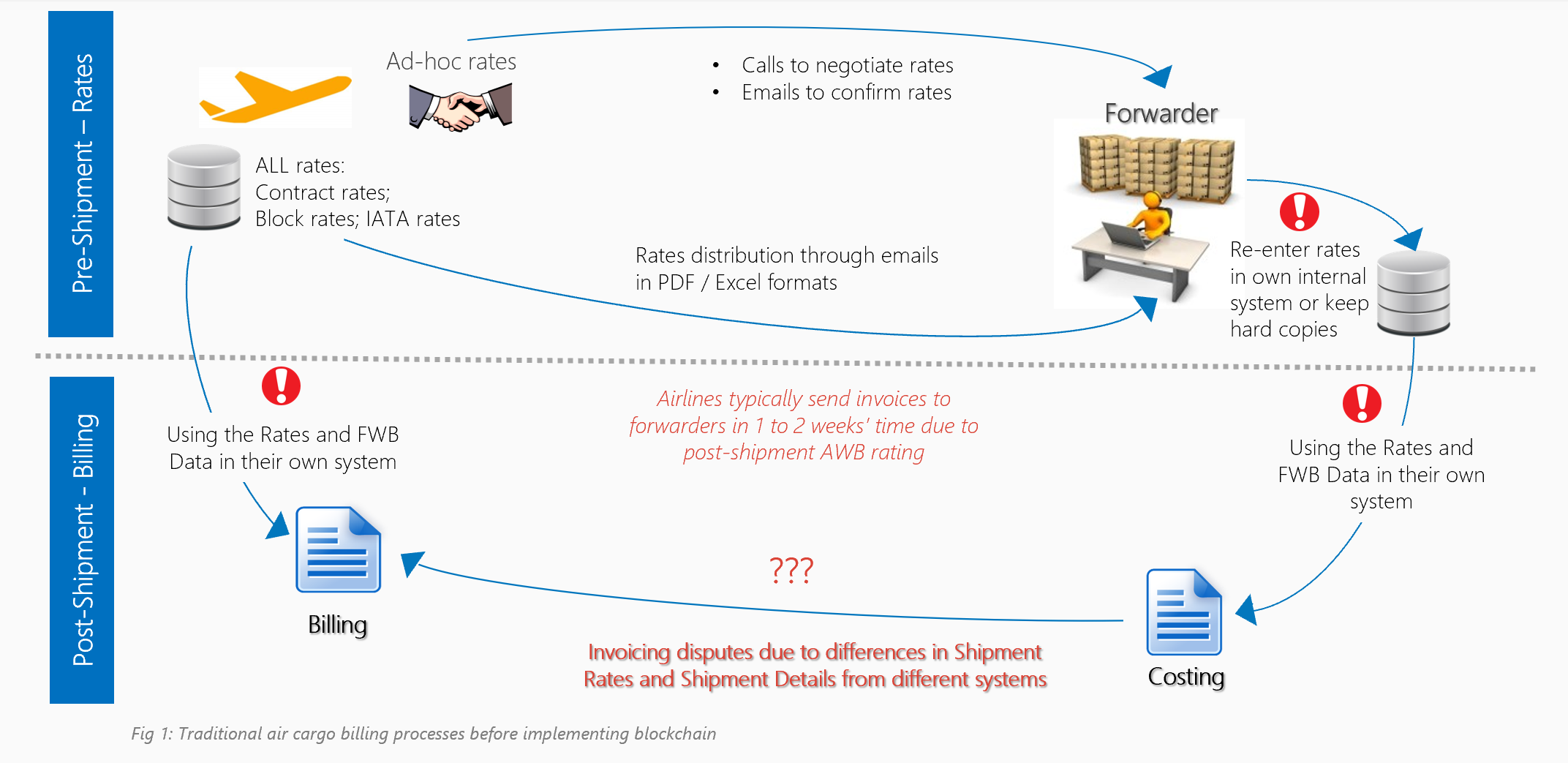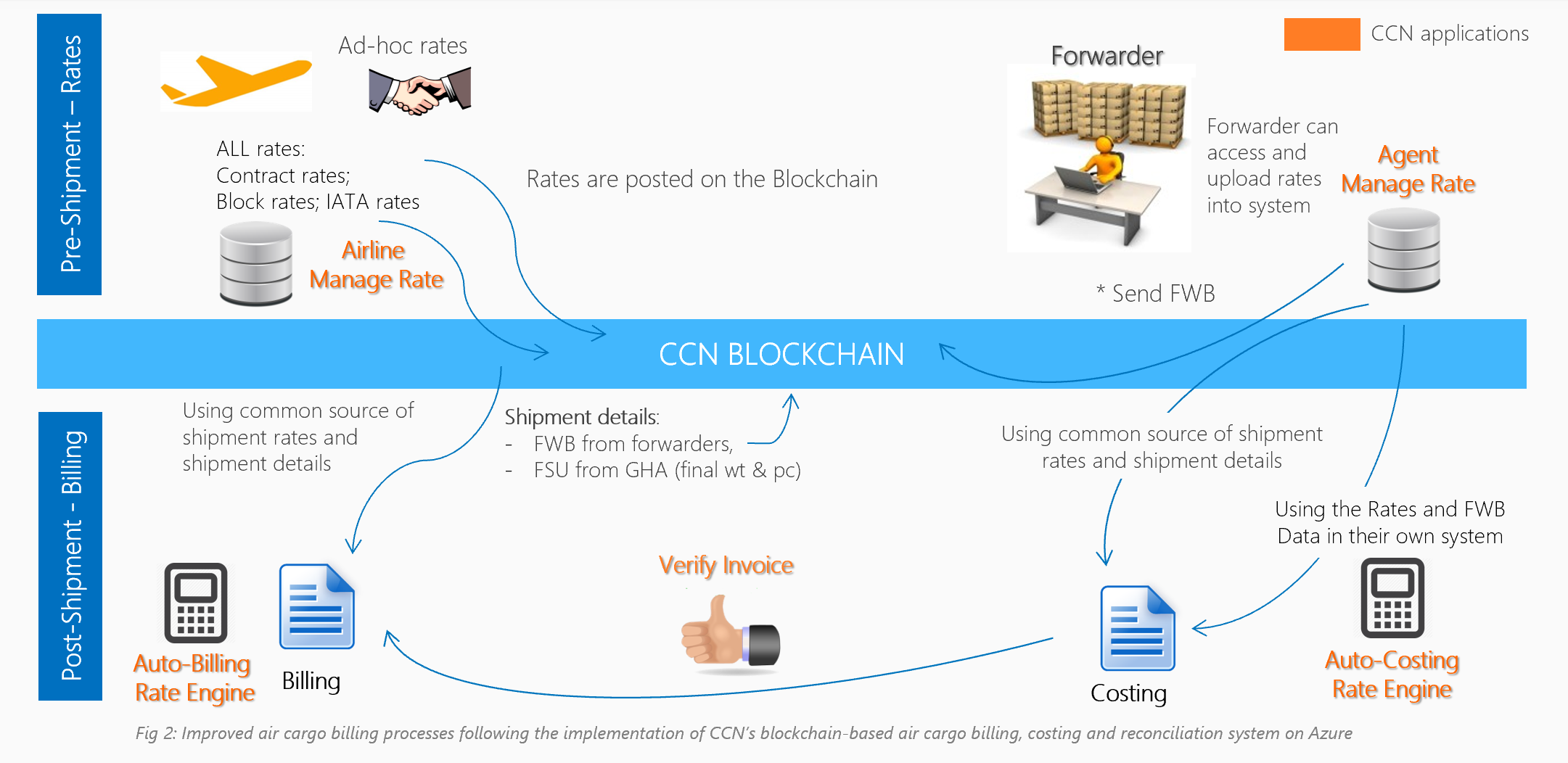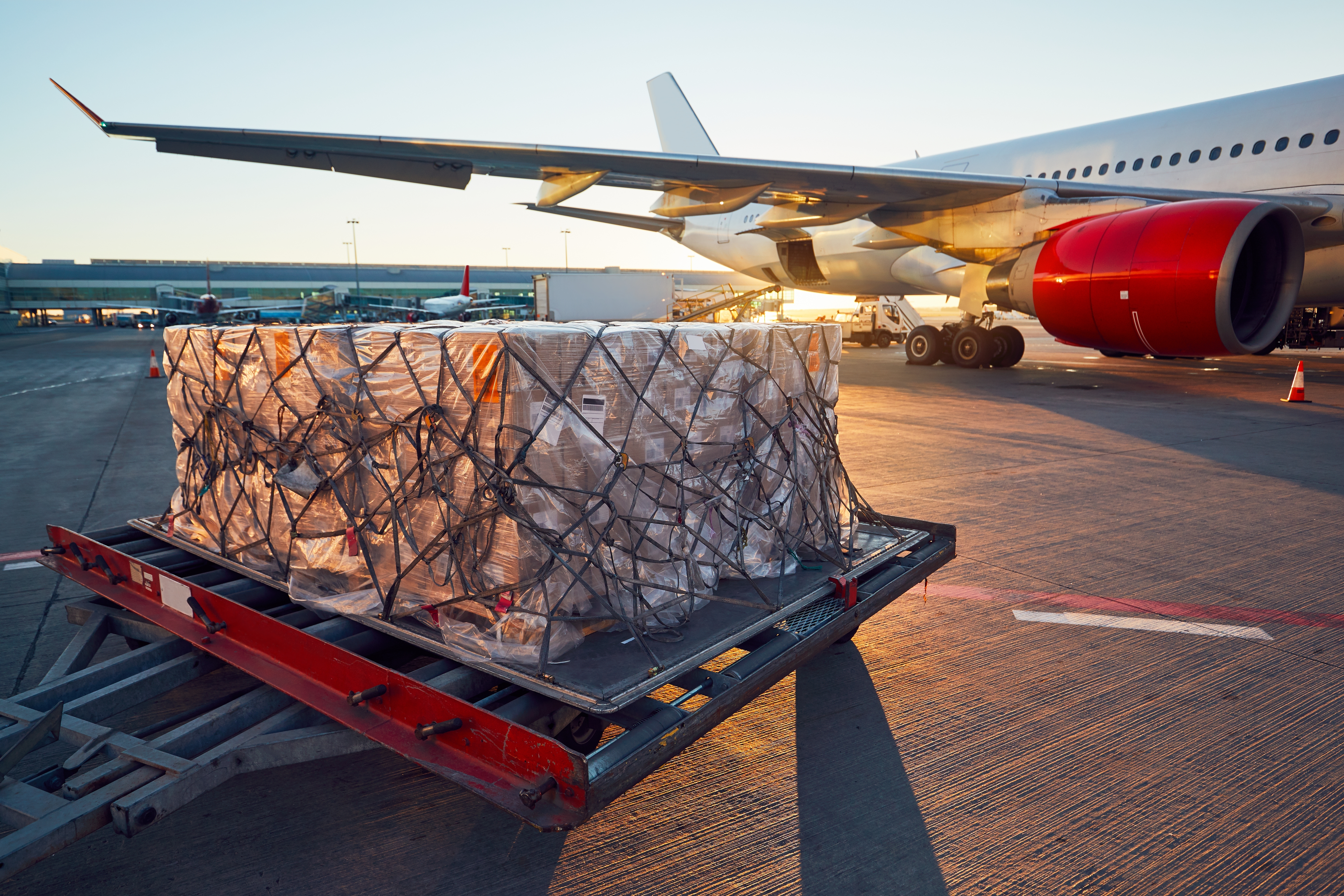Cargo Community Network (CCN), a leading provider of cargo community systems for the air cargo industry has partnered with Microsoft to introduce the world’s first blockchain-based air cargo billing, costing and reconciliation system. Launched at the 13th International Air Transport Association (IATA) World Cargo Symposium in Singapore, the system is set to transform air cargo billing processes, minimise billing discrepancies, accelerate billing reconciliation, and provide near real-time revenue recognition to enhance efficiency for airlines, cargo agents and freight forwarders involved in the entire supply chain.
CCN’s blockchain-based air cargo billing, costing and reconciliation system was launched following a hackathon organised by Microsoft and CCN, and a two-month proof-of-concept (POC) involving airline partners and freight forwarders such as Singapore Airlines (SIA), SATS Ltd., Alliance21 and Bollore.
Leveraging Microsoft Azure Blockchain technology, which offers an additional shared data layer among all parties involved in the supply chain, CCN is now able to deliver a single immutable source of information for air cargo shipment rates (computed and updated directly to blockchain), shipment details and billing processes via blockchain, with real-time updates provided by stakeholders. Already unprecedented, the flexible design of the system allows CCN to add more capabilities, as well as onboard more partners.
“The typical air cargo billing, costing and reconciliation process can involve many stakeholders along the entire supply chain. These processes are also very manual, manpower-intensive and prone to error. By using blockchain on Microsoft Azure, not only does this shorten the billing cycle from up to three weeks to a matter of hours, it can also reduce discrepancies, while enabling greater accountability and visibility across the entire supply chain,” said Teow Boon Ling, CEO at Cargo Community Network.
Lengthy, tedious billing processes prompted the need for digital transformation
Before introducing the blockchain-based air cargo billing, costing and reconciliation system, CCN’s air partners faced a number of challenges, including:
- Long wait for post-shipment billing, up to three weeks after the air cargo flight has departed;
- Laborious process to check the complicated freight rating rules to be applied for every shipment; and
- Tedious reconciliation by airlines and freight forwarders as it involves shipments that happened weeks ago.
In addition, CCN’s partners had to engage with multiple parties to complete the air cargo billing process (Fig. 1). The entire process – from requesting for rates to billing and reconciliation – can take up to a few weeks.

Improved billing processes with greater accountability, visibility with blockchain on Azure
By using blockchain on Azure, stakeholders in the supply chain can now retrieve information from a single source in real-time, including shipment details from the flight manifest (FFM), freight status update (FSU) and airway bill (FWB) to facilitate downstream billing and costing processes. Airlines and freight forwarders can also update their shipments and compute charges in real-time through the built-in smart contract feature for upfront reconciliation.
This provides timely financial information to stakeholders while enabling greater agility in revenue recognition, decision-making, risk management and customer service.

“In the competitive air cargo industry where speed and efficiency are key differentiators, technology can play an important role to enable greater operational efficiency across the entire supply chain. By using a robust, blockchain on Azure hybrid cloud set-up with high availability, Cargo Community Network is well-positioned to help airlines and freight forwarders to be quicker and more efficient with their billing processes, which can translate into tangible value-add for the industry across the board,” said Kevin Wo, Managing Director at Microsoft Singapore.
“Delivering convenience and simplicity to our partners has always been at the core of what we do. With our blockchain-based air cargo billing, costing and reconciliation system rolling out to our broader user community starting today, we believe that this will bring added value to all our airline and freight forwarding partners, and strengthen our position as the leading provider of innovative solutions for the air cargo industry,” added Teow.
About Cargo Community Network
Cargo Community Network (CCN), founded in 1991, is in the business of enabling seamless exchanges and management of vital information for the logistics industry. CCN pioneered the cargo community system for the airfreight industry and has since evolved to be one of the leading global solution providers in the logistics industry. It provides a suite of advanced solutions, leveraging on transformative technology like, artificial intelligence and machine learning, to bring great value to our customers. With a strong presence in 15 countries, CCN’s network of communities continues to grow from the current base of more than 10,000 users.
With CCNhub LINC, its integrated collaborative platform, customers worldwide will enjoy the ease of connectivity to all supply chain stakeholders. This eco-system gives users the access to a comprehensive portfolio of advanced IT solutions which includes cargo management, customs security compliance, business performance analytics, control tower and other customized services. These solutions enable our customers to simplify business processes, drive efficiency and improve productivity. Our visibility solutions allow capabilities of real-time monitoring and post-shipment analysis, to provide you with the control to drive your business further As a Strategic Partner of International Air Transport Association (IATA), CCN is an active participant in the development of industry-wide initiatives like e-Freight and e-AWB, and is well positioned to equip our customers with capabilities to meet industry demands.

